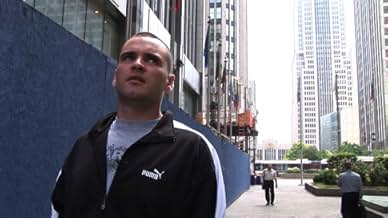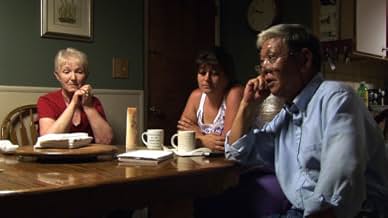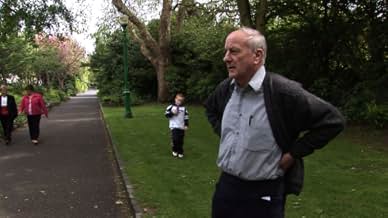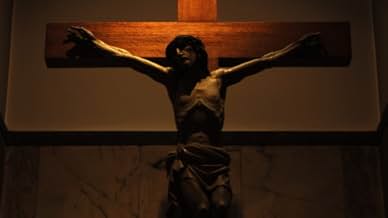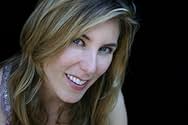NOTE IMDb
7,9/10
11 k
MA NOTE
Ajouter une intrigue dans votre langueDocumentary about Father Oliver O'Grady, a Catholic priest who was relocated to various parishes around the United States during the 1970s in an attempt by the Catholic Church to cover up hi... Tout lireDocumentary about Father Oliver O'Grady, a Catholic priest who was relocated to various parishes around the United States during the 1970s in an attempt by the Catholic Church to cover up his rape of dozens of children.Documentary about Father Oliver O'Grady, a Catholic priest who was relocated to various parishes around the United States during the 1970s in an attempt by the Catholic Church to cover up his rape of dozens of children.
- Réalisation
- Scénario
- Casting principal
- Nommé pour 1 Oscar
- 5 victoires et 15 nominations au total
Thomas Doyle
- Self
- (as Father Tom Doyle)
Pope Benedict XVI
- Self
- (images d'archives)
Monsignor Cain
- Self
- (images d'archives)
Mary Gail Frawley-O'Dea
- Self - Psychologist
- (as Dr. Mary Gail Frawley-O'Dea)
Roger Mahony
- Self
- (as Cardinal Roger Mahony)
Nancy Sloan
- Self
- (as Nancy Sloan)
Mike Walker
- Self
- (as Detective Mike Walker)
Avis à la une
You judge a tree by its fruit. This documentary succeeds in letting viewers behold this dark little secret that the Catholic Church hopes you will never find out about: The rotting fruit of their sin-harvest that comes from unspeakably heinous crimes against children that are tolerated by them as being business-as-usual! Love is the desire to do good to others but that is the antithesis of all that the Catholic Church represents as it was portrayed in this documentary and as revealed by fearless journalists all over the world who have courageously accepted the bold challenge to find the truth no matter where it takes them and then tell it like it is.
10Jaymay
In my opinion, this film is a front-runner for the Oscar for Best Documentary for 2006.
It's absolutely riveting. If you are a fan of "Silence of the Lambs," you should see this because Oliver O'Grady is just as chilling as Hannibal Lecter -- more so because he is real. Filmmaker Amy Berg did a news piece on O'Grady, a Catholic priest who raped dozens -- possibly hundreds -- of children in California. On a whim, she called him in his exile in Ireland and got him to agree to an extensive three day interview. It is a confession unlike any other.
On one level, Deliver Us From Evil is a righteous indictment of the Catholic Church: its inaction, its enabling, its bureaucracy, its male-dominated backwardness.
At the same time, the film is a profile of some incredibly decent people: Catholic parents and children who were victims in this rampage. Their character is inspiring -- their pain is as raw as anything you will ever see on film.
Finally, it's the study about the way a psychopath can play every human emotion to his own advantage.
There is Hell to pay for this man's sins. And some victims are living that hell every day.
It's absolutely riveting. If you are a fan of "Silence of the Lambs," you should see this because Oliver O'Grady is just as chilling as Hannibal Lecter -- more so because he is real. Filmmaker Amy Berg did a news piece on O'Grady, a Catholic priest who raped dozens -- possibly hundreds -- of children in California. On a whim, she called him in his exile in Ireland and got him to agree to an extensive three day interview. It is a confession unlike any other.
On one level, Deliver Us From Evil is a righteous indictment of the Catholic Church: its inaction, its enabling, its bureaucracy, its male-dominated backwardness.
At the same time, the film is a profile of some incredibly decent people: Catholic parents and children who were victims in this rampage. Their character is inspiring -- their pain is as raw as anything you will ever see on film.
Finally, it's the study about the way a psychopath can play every human emotion to his own advantage.
There is Hell to pay for this man's sins. And some victims are living that hell every day.
I saw this film at the Toronto Film Festival, and I am still thinking about it a day later. I was raised a Catholic, and I think that this film should be required viewing for all Catholics. Amy Berg has constructed a documentary that is not only about the abuse of children and their families by an individual priest; it is also about the evil and politics that exist within the institution of the church and that have allowed (and continue to allow) horrible abuses to occur. It actually hurt to watch this film, but I did not walk out of the theatre with a sense of defeat. I left with a sense of resolve, knowing that we need to take the CHURCH back from the politicians masquerading as bishops and cardinals and, yes, even the pope.
This is mighty strong documentary on the abuse of children by the Catholic Church and its cover-up. I read elsewhere that the term "abuse" is a euphemism for much more sordid acts; namely the physical rape of an innocent child.
This film examines the history of one pedophile priest in the United States and how his acts were simply covered-up by the Catholic hierarchy. He performed innumerable acts on both male and female children. Even though some parents reported this to the Catholic ministry, it was only when police officials became involved that he was arrested. There are many interviews with both the victims and those in the Church hierarchy who covered it up, as well as the pedophile himself.
So are we provided with many different angles. The documentary never becomes accusatory in itself – but it allows us to view the heart-wrenching lives of the victims and their families. They try to extract an apology from the Vatican, but this is all in vain.
It even brings us to view the life of this eerie pedophile, not presented as evil incarnate; but as a human being with a severe psychological problem. At times you can feel his ingratiating performance even as he acknowledges the severity of what he has done. This is a rare film that deals with both oppressor and oppressed.
The film is about several things: the nature of the evil that exists in this pedophile, the corruption of the Catholic Church, the Church's refusal to deal with sexual issues and admit its crimes against humanity, but most of all it is about the torment of the victims who are left alone with their families to struggle on with their lives. This documentary contains some very emotional scenes and is very well made.
This film examines the history of one pedophile priest in the United States and how his acts were simply covered-up by the Catholic hierarchy. He performed innumerable acts on both male and female children. Even though some parents reported this to the Catholic ministry, it was only when police officials became involved that he was arrested. There are many interviews with both the victims and those in the Church hierarchy who covered it up, as well as the pedophile himself.
So are we provided with many different angles. The documentary never becomes accusatory in itself – but it allows us to view the heart-wrenching lives of the victims and their families. They try to extract an apology from the Vatican, but this is all in vain.
It even brings us to view the life of this eerie pedophile, not presented as evil incarnate; but as a human being with a severe psychological problem. At times you can feel his ingratiating performance even as he acknowledges the severity of what he has done. This is a rare film that deals with both oppressor and oppressed.
The film is about several things: the nature of the evil that exists in this pedophile, the corruption of the Catholic Church, the Church's refusal to deal with sexual issues and admit its crimes against humanity, but most of all it is about the torment of the victims who are left alone with their families to struggle on with their lives. This documentary contains some very emotional scenes and is very well made.
I saw this movie tonight and found it excellent. Parts of this movie made my skin crawl, others moved me to tears. The sight of a sixty year old man, with a deep bellowing voice, weep in anguish at the pain his daughter went through and the deception the whole family experienced: this touched me deeply.
This movie also offered some helpful insights in alternating between both the abused and the abuser looking back on the abuse. The abuser looks back on it w/ detached shame and remorse. The victims and their families rage with intense, fresh pain despite the decades.
The ray of hope in this movie is Father Thomas Doyle, a priest who reaches out to the families with compassion, hugs, apologies. He's articulate and knowledgeable about church polity and politics as well as the "spiritual rape" that occurs when kids are abused by a religious leader; and he knows his Jesus, that is, he shows Christ talked about "suffering little children to come to me..for such is the kingdom of God."
I still don't understand how the church leadership in California (i.e. in this specific case) leadership forgot this teaching of Jesus regarding children: "But whoso shall offend one of these little ones which believe in me, it were better for him that a millstone were hanged about his neck, and that he were drowned in the depth of the sea."
I wish this topic would have come up more in the film.
Addendum: * My thoughts led me back to this film as I recently learned that someone had abused one of my former students. "Deliver us from evil" came immediately to mind; this movie woke me up to the fact that a nice/charming/well-mannered/harmless-looking/great-with-kids person can really be dangerous evil and treacherous, i.e. "prowling around like a roaring lion." For this reason, I think every adult should see this movie.
(Just today I read how a man in Chicago abused a girl after befriending her mom. "She said their friendship grew to the point where she allowed him to take her son and daughter on outings." I cannot but think that if either the mom/neighbor/relative/friend saw this movie someone might have said uttered a word of caution which could have prevented such a tragedy).
* Clearly the priests who shuffled around the abusers (and effectively covered up these scandals), underestimated the trauma and damage caused by abuse. But just what *were* they thinking? "They won't remember it." "They'll get over it". Yet the testimony of the people in this movie show that the long-term damage is enormous. What really went on in the heads of the leadership? I'd like to know.
This movie also offered some helpful insights in alternating between both the abused and the abuser looking back on the abuse. The abuser looks back on it w/ detached shame and remorse. The victims and their families rage with intense, fresh pain despite the decades.
The ray of hope in this movie is Father Thomas Doyle, a priest who reaches out to the families with compassion, hugs, apologies. He's articulate and knowledgeable about church polity and politics as well as the "spiritual rape" that occurs when kids are abused by a religious leader; and he knows his Jesus, that is, he shows Christ talked about "suffering little children to come to me..for such is the kingdom of God."
I still don't understand how the church leadership in California (i.e. in this specific case) leadership forgot this teaching of Jesus regarding children: "But whoso shall offend one of these little ones which believe in me, it were better for him that a millstone were hanged about his neck, and that he were drowned in the depth of the sea."
I wish this topic would have come up more in the film.
Addendum: * My thoughts led me back to this film as I recently learned that someone had abused one of my former students. "Deliver us from evil" came immediately to mind; this movie woke me up to the fact that a nice/charming/well-mannered/harmless-looking/great-with-kids person can really be dangerous evil and treacherous, i.e. "prowling around like a roaring lion." For this reason, I think every adult should see this movie.
(Just today I read how a man in Chicago abused a girl after befriending her mom. "She said their friendship grew to the point where she allowed him to take her son and daughter on outings." I cannot but think that if either the mom/neighbor/relative/friend saw this movie someone might have said uttered a word of caution which could have prevented such a tragedy).
* Clearly the priests who shuffled around the abusers (and effectively covered up these scandals), underestimated the trauma and damage caused by abuse. But just what *were* they thinking? "They won't remember it." "They'll get over it". Yet the testimony of the people in this movie show that the long-term damage is enormous. What really went on in the heads of the leadership? I'd like to know.
Le saviez-vous
- AnecdotesNominated at the 2007 Oscars for Best Documentary, but lost to An Inconvenient Truth.
- Bandes originalesSee You Soon
Written by Tom Maxwell (as Maxwell) / Ken Mosher (as Mosher)
Performed by Tom Maxwell & Ken Mosher
Meilleurs choix
Connectez-vous pour évaluer et suivre la liste de favoris afin de recevoir des recommandations personnalisées
- How long is Deliver Us from Evil?Alimenté par Alexa
Détails
Box-office
- Montant brut aux États-Unis et au Canada
- 201 275 $US
- Week-end de sortie aux États-Unis et au Canada
- 15 656 $US
- 15 oct. 2006
- Montant brut mondial
- 327 205 $US
- Durée1 heure 41 minutes
- Couleur
- Mixage
- Rapport de forme
- 1.85 : 1
Contribuer à cette page
Suggérer une modification ou ajouter du contenu manquant

Lacune principale
By what name was Délivrez-nous du mal (2006) officially released in India in English?
Répondre

